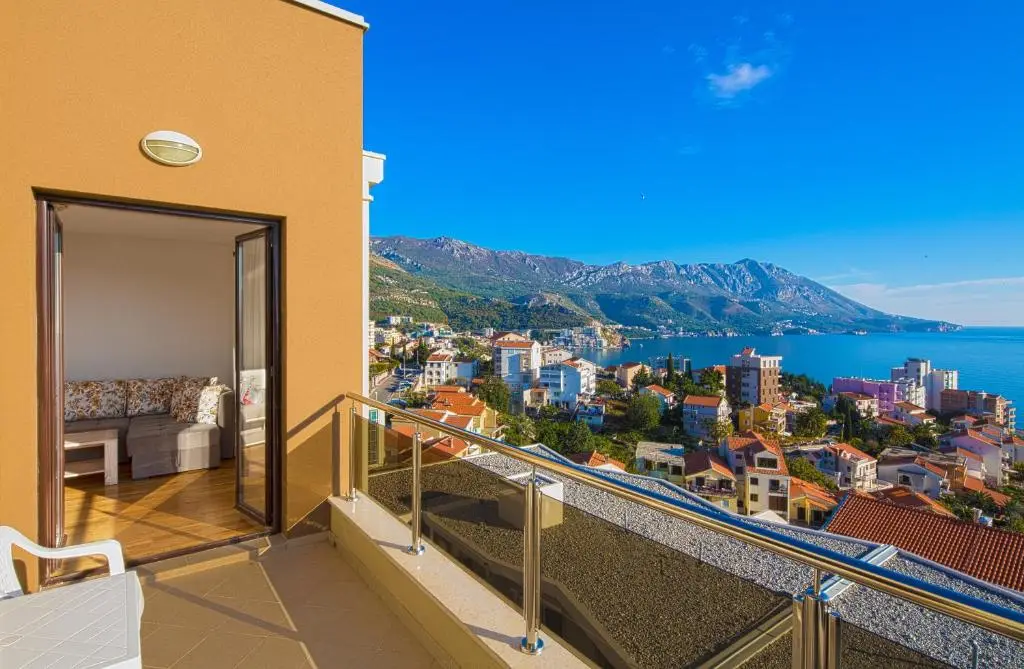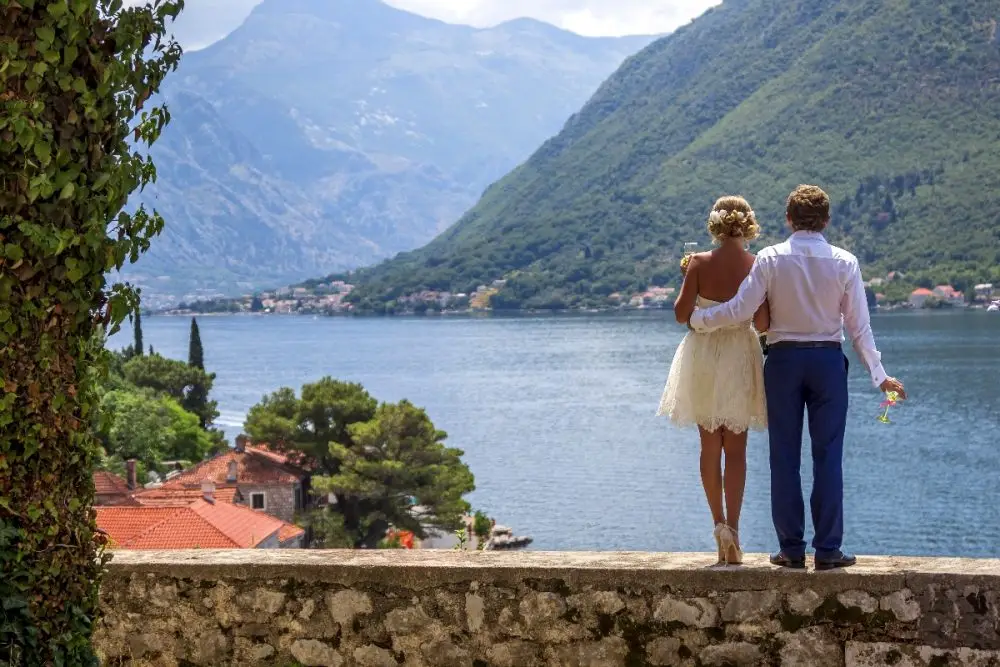Imagine: morning, you are drinking coffee on the terrace overlooking the beautiful sea, surrounded by centuries-old mountains and the scent of pine trees. This idyllic picture is becoming more and more of a reality for foreigners choosing the Adriatic gem not just for vacation, but for living and investing. A country that combines European comfort with unique Balkan charm offers unique opportunities in the real estate market. We have prepared a guide on buying property in Montenegro. Keep reading if you want to purchase property here.
Where to Buy Property in Montenegro
The coast is the epicenter of demand. Tivat, with its international airport and yacht infrastructure Porto Montenegro, shows steady growth. Kotor consistently maintains its status as a premium destination. Budva is a magnet for short-term rentals. At the same time, the northern regions – Kolasin, Zabljak – offer property in Montenegro at significantly lower prices, attracting supporters of eco-friendly formats and ski tourism.

Among the interesting cases is the Luštica Bay complex, where a new building with turnkey finishing starts from 230,000 euros, and rent in the high season starts from 250 euros per day. Profitability in peak months reaches 8-10% annually.
Documents Needed and Important Considerations: Guide to Buying Property in Montenegro
How to buy property in Montenegro without falling into bureaucratic traps? Registering a transaction requires checking property rights, cadastral information, tax debt, and property history. Involvement of a lawyer with a Montenegrin license is not a formality but a mandatory requirement.
The main package includes:
- Cadastral extract (title deed).
- Consent of all co-owners.
- Deed of ownership.
- Tax certificate showing no debts.
- Notarized contract certification.
Permits, transaction processing, and payment of state fees (3% of the property value) take from 3 to 6 weeks. When purchasing property, it is recommended to include notary services (from 250 euros) and an appraiser (up to 500 euros if necessary) in the budget.
Residence Permit in Montenegro for Property Ownership
The law does not provide for automatic residency status upon acquiring property. However, residency in the country is possible when establishing a basis for residence – for example, as a property owner with stable income. Practice shows that with proper support, residency status is granted for one year with the right to extension.
Financial Model: Investments and Taxes
Investments in Montenegro real estate demonstrate stable profitability. Rental rates on the coast range from 500 to 1500 euros per month, with seasonality being the main profit factor. The rental income tax rate is 9%. Property tax ranges from 0.1% to 1%, depending on location and area. Utility costs are around 1.2 euros per sq. m.
Detailed recommendations include:
- Choose a strategy – rental income or capitalization.
- Calculate the total ownership cost: taxes, maintenance, depreciation.
- Manage currency risks – transactions are conducted in euros.
- Compare offers from developers and private individuals – the former often offer installment plans.
- Assess market value – especially for properties away from the coast.
- Estimate relocation expenses – legal support, moving, registration.
Buying without a clear calculation often results in hidden costs and reduced profitability. The guide to buying property in Montenegro emphasizes that the investment model requires precise financial discipline at all stages.
Mortgage in Montenegro for Foreigners
Financial institutions rarely provide mortgages to foreigners, but there are exceptions. A stable income, registration in the country, an initial down payment of 30%, and property approved by the bank are required. Interest rates range from 5-6.5% annually, with terms up to 20 years.
Banks such as CKB and NLB offer loans to EU citizens, with residents being a priority. It is more common for buyers to use installment plans from developers – from 12 to 36 months interest-free.
Real Estate Market in Montenegro
The housing market maintains a stable growth trend. Capital inflows, infrastructure development, and legislative improvements have intensified competition. New buildings are handed over with finishing touches, turnkey, with parking and infrastructure. The secondary market offers a wide range of prices and more flexible transaction conditions.
From 2022 to 2024, the average cost increase in Tivat was 23%, in Budva – 19%, in Bar – 15%. Current offers on the coast range from 1200 to 3000 euros per sq. m. Demand for housing has increased in the boutique apartment segment, with unique architecture and panoramic windows. Foreigners often choose a house or apartment with a sea view, ranging from 60 to 120 sq. m.
The guide to buying property in Montenegro includes priority categories – investment projects, comprehensive developments with services, and flexible payment terms. The number of completed transactions involving investors from CIS countries increased by 31% in the last year.
Relocation Through Square Meters: Strategy
Many consider buying property as a step towards living abroad. The country is suitable for relocating freelancers, entrepreneurs, retirees, and families. Key factors include no language barrier, legalization opportunities, and accessible healthcare.
The migration service accepts applications for residency with housing, lease or ownership agreement, health insurance, and a bank account with a balance of at least 3650 euros per person per year. Additionally, a certificate of no criminal record and a medical examination are required.
The guide to buying property in Montenegro emphasizes that owning property simplifies obtaining local registration, access to banks, and educational institutions. The benefit is the absence of gift and inheritance taxes.
Taxes Paid by Foreigners
A foreigner owning property in Montenegro pays two mandatory taxes: property tax and income tax (for rentals). The amount depends on location, type of property, and purpose.
- Property tax – from 0.1% to 1% annually. For example, for an apartment worth 120,000 euros in Kotor, it is around 300 euros per year.
- Income tax – a fixed 9%, applicable to rental income.
- When selling a property within 3 years – capital gains tax of 15%.
The guide to buying property in Montenegro recommends considering indirect expenses – utility payments, accountant services, banking fees.
Deal from A to Z: Guide to Buying Property in Montenegro
The property purchase process is strictly regulated and includes legally significant stages. Adhering to deadlines and sequence helps avoid delays and legal risks.
The transaction process includes several stages:

- Negotiating terms.
- Property and document verification.
- Signing a preliminary contract and paying a deposit (usually 10%).
- Signing the main contract at a notary’s office.
- Payment and registration in the cadastre.
The entire process takes from 2 to 6 weeks. Notary fees range from 250 to 800 euros, registration is 3% of the transaction amount. The standard property ownership transfer time is 15-20 working days.
Conclusion
The market is steadily growing, investments yield returns, and legal procedures remain accessible. The guide to buying property in Montenegro helps avoid mistakes, calculate ownership costs, choose a strategy – for living, income, or relocation. Real data, verified calculations, and clear logic ensure results.
 en
en  ru
ru  de
de  ar
ar  es
es  nl
nl  hi
hi  fr
fr  it
it  pt
pt  el
el 











